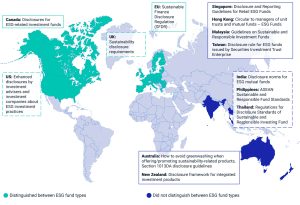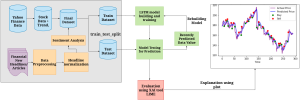How to Avoid Common Financial Mistakes
3 min read
Saving money or having a healthy credit score takes time and dedication; it takes dedication, commitment, and some practice to form good money habits.
It’s never too late to improve your financial situation and lifestyle. But in order to do so, you need to avoid making common financial errors that could put your assets at risk.
1. Not Creating a Budget
Budgeting is an invaluable tool in making wise financial decisions. It allows you to keep tabs on your spending and ensures that you don’t spend more than what you earn, which could cause serious issues down the line.
Establishing a budget is essential, as it helps you avoid common financial missteps that could negatively affect your long-term savings and credit score. Although it takes some practice to become proficient with this process, the effort will be worth all the effort in the end.
It’s essential to remember that your budget doesn’t have to include all the luxuries you desire in life. Sometimes, you just need to cut expenses in order to free up more money for what really matters in life.
Budgeting often necessitates adjustments during the first few months, but you should begin to notice an impact on your spending as you become more familiar with your income and expenses. If there has been no noticeable shift, it could be time for a fresh approach and revisiting your spending habits.
2. Not Investing Your Tax Refund
Most Americans receive a tax refund each year, which can be an excellent opportunity to improve your financial situation. Unfortunately, many people make costly mistakes when spending this large sum of cash.
Instead, use your refund to supplement emergency savings, pay off debt or invest for retirement. Doing so will give you a sense of security and help prevent you from falling further into debt in the future.
3. Not Having a Savings Account
Savings accounts are ideal for storing money away for future needs or goals. They also offer a secure location to place extra cash while earning interest on it.
Savings accounts come in many different varieties, from traditional to high-yield, so do your due diligence before selecting one. Research rates and features at multiple banks and credit unions to find the one that meets your requirements best.
Usually, you must visit a branch or ATM to make deposits or withdrawals; however, most banks offer online access and mobile app options for making transfers. These may include depositing checks, transferring from checking or an electronic transfer between banks. The key to successful savings accounts lies in making sound financial decisions and sticking to budget. Doing this helps avoid common financial errors and keeps your money working for you. It also means having money set aside in case of emergencies – such as having an emergency fund or larger down payment on your dream home!
4. Not Having a Financial Plan
Crafting a financial plan is an efficient way to manage your money. It helps you set objectives, track success and devise strategies for achieving them.
Create your financial plan yourself or seek professional assistance. Online services like robo-advisors can also offer affordable financial planning solutions at reasonable costs.
A financial plan is a comprehensive roadmap of your finances, from cash flow to savings and investing. Not only does it reduce stress about money matters, but it can also provide for current needs while building an emergency fund for future goals.
Without a financial plan, you could make an expensive mistake. Take some time to calculate your net worth, identify short and long-term objectives, create a budget and investment strategy to reach those targets.
A financial plan can also assist in identifying opportunities to save more and pay off debt. It will allow you to determine if you’re spending too much on certain expenses or not saving enough for the future.







